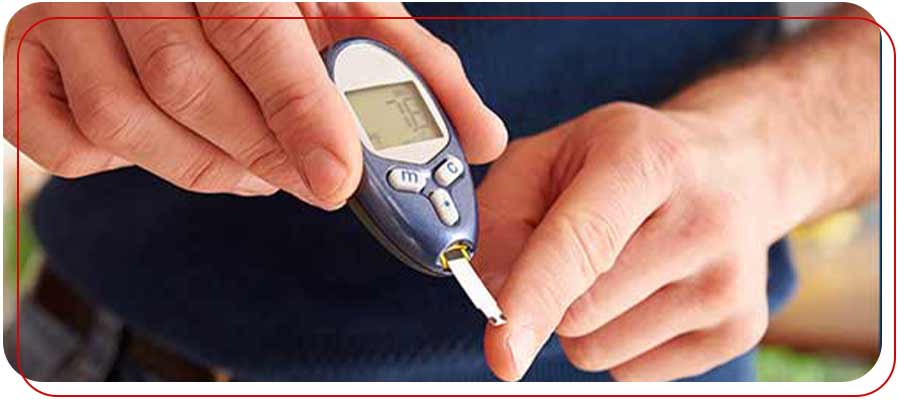Diabetes Management: Tips for Lowering Blood Sugar
Diabetes is a chronic disorder that becomes life-threatening if untreated and poorly managed. Managing diabetes includes controlling blood pressure, cholesterol, and sugar levels. PrimeHealth Primary Care promotes the management of diabetes. For more information, please contact us or request an appointment online. We are conveniently located at 3014 53rd Ave East, Bradenton, FL 34203.


Table of Contents:
How can a diabetic lower blood sugar quickly?
What is the normal blood sugar level for those who have diabetes?
Why is it important to lower your high blood sugar?
What warning signs patients should know of high blood sugar?
If you are diagnosed with any type of diabetes or are prediabetic, it is incredibly important that you know how to manage your blood sugar level to help maintain overall health and energy levels to continue about your normal life. Your primary care physician will be there to support you in figuring out what are the best ways for you to properly manage your condition, whether your diabetes can be easily regulated through a healthy balanced diet and regular exercise, or if it is better for you to learn how to administer insulin injections to yourself to provide a quick method of lowering blood sugar levels. Regardless of how you and your physician go about your diagnosis, it is important that you are knowledgeable about the disease and the possible symptoms and effects that come with diabetes to better maintain your health.
Those who are diagnosed with diabetes are often given rapid-acting insulin injections that they can do themselves in case they need to regulate their blood sugar level quickly. Insulin injections are the fastest way to lower blood sugar. Another way to quickly lower blood sugar is through exercise and staying hydrated, though this isn’t always the safest option so ensure you are meeting with a doctor if your blood sugar needs to be lowered frequently to discuss the best options. There are some cases in which a dangerously high blood sugar level should just be treated at a hospital as soon as possible.
For longer-term blood sugar level regulation, having a healthy, balanced diet that has fewer carbs and more foods that promote overall health can help to optimize blood sugar levels. A healthy diet is one of the most crucial aspects of ensuring a regulated blood sugar level.
A normal, healthy blood sugar level measured using an A1C test should be below 5.7% or equal to or below 99 mg/dL (results of a fasting blood sugar test). If someone is prediabetic, their A1C test will show their blood sugar level to be slightly higher, being between 5.7% and 6.4%, and reading between 100 mg/dL and 125 mg/dL from a fasting blood sugar test. An A1C test will read at 6.5% blood sugar level or higher for those who are diabetic, and their fasting blood sugar test results will be equal to or above 126 mg/dL.
Your blood sugar level can influence quite a bit else in your body if it is not properly managed. If the levels sway too far from your target range frequently, it can cause serious health problems that can be long-term such as vision loss, kidney disease, and heart disease. Having consistently uncontrolled blood sugar levels has also been shown to cause dementia. As well, being able to stay in the target range recommended for your blood sugar levels can help you maintain your energy and mood, and can help with bladder issues.
If your blood sugar levels are frequently higher than what is considered healthy for you and stay high for long periods of time (for months or even years), permanent damage could be developed in the eyes, nerves, kidneys, or blood vessels. Having a higher blood sugar level also just comes with its own symptoms including dry mouth and increased thirst, feeling the need to pee more frequently, blurry vision, weight loss that is unintentional, and infections such as thrush, skin infections, and bladder infections.
Some indicators to look out for that can be caused by untreated high blood sugar include vomiting, excessive thirst and hunger, a quickened heartbeat, problems with vision, thrush, bladder infections, skin infections, lack of energy, and much more. Patients have also noted that they were prone to mood swings and were often feeling irritable, and had lost some of their muscle bulk.
Visit our clinic for diabetes management. For more information, contact us or book an appointment online. We are conveniently located at 3014 53rd Ave East, Bradenton, FL 34203. We serve patients from Bradenton FL, Ellenton FL, Palmetto FL, Rubonia FL, Foxleigh FL, West Samoset FL, and surrounding areas.

Additional Services You May Need
• Physical Exam
• Wound Care
• Sports and School Physicals
• Lab Tests
• Primary Care
• Immunizations
• X-Ray
• Blood Testing
• Chronic Care
• Diabetes
• Skin Conditions
• Procedures
• STD Testing
• Telemedicine
• Covid Testing
• Occupational Medicine
• Corticosteroid Joint Injections
• Anterior Nasal Packing
• Eye Irrigation for Chemical Exposures
• EpiPen Administration and Monitoring
• Oxygen Administration
• Breathing Treatments
• Blood Draws and Basic Lab Tests
• ECG Interpretation
• Laceration Repair
• Incision and Drainage (I&D) of Abscesses
• Foreign Body Removal
• Burn Care
• Wound Debridement
• Nail Trephination
• Ingrown Toenail Removal
• Skin Tag Removal
• Skin Wart Removal
• Steri-Strip and Skin Adhesive
• Splinting for Minor Fractures or Sprains
• Joint Aspiration for Pain Relief or Diagnostic Purposes
• Dislocation Treatment
• Crutch Fitting and Gait Training
• Cerumen (Earwax) Removal
• Eye Foreign Body Removal
• Hemorrhoid Care (Non-Surgical)
• Nebulizer Treatments
• Abscess Drainage
• Skin Glue Application
• IV Placement and Fluid Administration
• Rapid Diagnostic Testing
• Tetanus/Diphtheria Vaccination

Additional Services You May Need
• Physical Exam
• Wound Care
• Sports and School Physicals
• Lab Tests
• Primary Care
• Immunizations
• X-Ray
• Blood Testing
• Chronic Care
• Diabetes
• Skin Conditions
• Procedures
• STD Testing
• Telemedicine
• Covid Testing
• Occupational Medicine
• Incision and Drainage (I&D) of Abscesses
• Laceration Repair
• Foreign Body Removal
• Burn Care
• Wound Debridement
• Nail Trephination
• Ingrown Toenail Removal
• Skin Tag Removal
• Skin Wart Removal
• Steri-Strip and Skin Adhesive
• Splinting for Minor Fractures or Sprains
• Joint Aspiration for Pain Relief or Diagnostic Purposes
• Dislocation Treatment
• Crutch Fitting and Gait Training
• Corticosteroid Joint Injections
• Cerumen (Earwax) Removal
• Anterior Nasal Packing
• Eye Foreign Body Removal
• Eye Irrigation for Chemical Exposures
• Hemorrhoid Care (Non-Surgical)
• Nebulizer Treatments
• EpiPen Administration and Monitoring
• Oxygen Administration
• Breathing Treatments
• Abscess Drainage
• Skin Glue Application
• IV Placement and Fluid Administration
• Blood Draws and Basic Lab Tests
• Rapid Diagnostic Testing
• ECG Interpretation
• Tetanus/Diphtheria Vaccination






